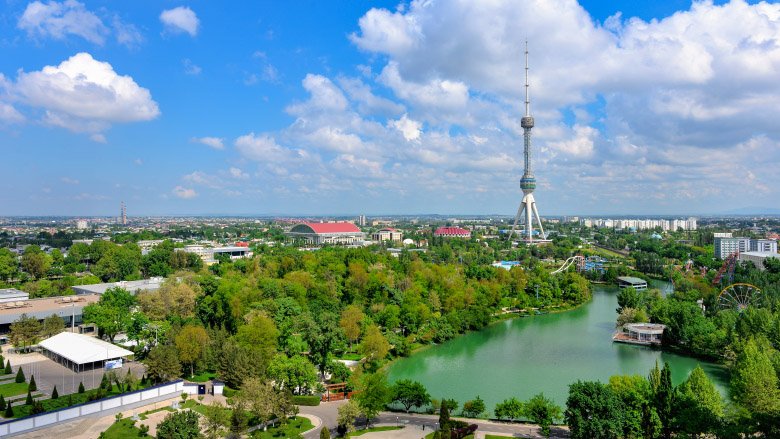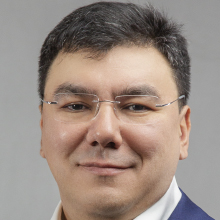Challenge
Over the past three decades, Uzbekistan has experienced remarkable economic progress, with the reform agenda laying the groundwork for future economic expansion. Recent macroeconomic analysis indicates that the country’s economy rebounded to 7.2% in 2021, after a contraction of 1.9% in 2020, and reached 5.5% in 2023, demonstrating one of the highest growth rates among the countries in the Europe and Central Asia region.
Yet, Uzbekistan has room for improvement compared to other countries on key metrics, especially high energy and carbon intensity. This increases its vulnerability to external trade policies. As more countries adopt strong climate agendas and global demand for carbon-intensive products is likely to decrease, the country faces transition risks from a global policy environment that is shifting rapidly to address climate change. A rich resource base can be a strong and sustainable economic pillar if environmental and climate change policies are strengthened and integrated with economic policies through the "greening" of the economic growth model.
The Government of Uzbekistan has recognized that an emission and resource-intensive growth model is unsustainable and has initiated a series of structural reforms to pivot the country toward a greener and more inclusive growth framework. There are barriers that impede effective integration of green growth principles in policies, strategies, and investment decisions such as insufficient knowledge, capacity, and public awareness. The PASA's aim was to address these barriers and knowledge gaps.
Approach
The World Bank launched a joint engagement with MEF to support Uzbekistan's transition to a green economy. Towards these objectives, the World Bank and MEF team developed a four-pronged approach that leveraged: joint stakeholder engagement, joint development partner coordination, joint communication, and joint human and financial resource mobilization. Activities under these areas included:
Joint development partner coordination: The World Bank and MEF established a donor coordination group and a joint secretariat with the United Nations Development Program (UNDP) and Agence Française de Développement (AFD) to align efforts and coordinate support for development of Uzbekistan's Green Growth Strategic Framework.
Joint communication: The World Bank and MEF jointly implemented a public outreach campaign to raise public awareness of green growth and climate change reaching policymakers, decision-makers, experts, civil society and the public in Uzbekistan and Central Asia through events and conferences, media materials, and blogs showcasing PASA activities and achievements.
Joint human and financial resource mobilization: The World Bank and MEF jointly raised trust funds to establish a position of economic adviser in MEF’s newly established Green Growth Unit.


